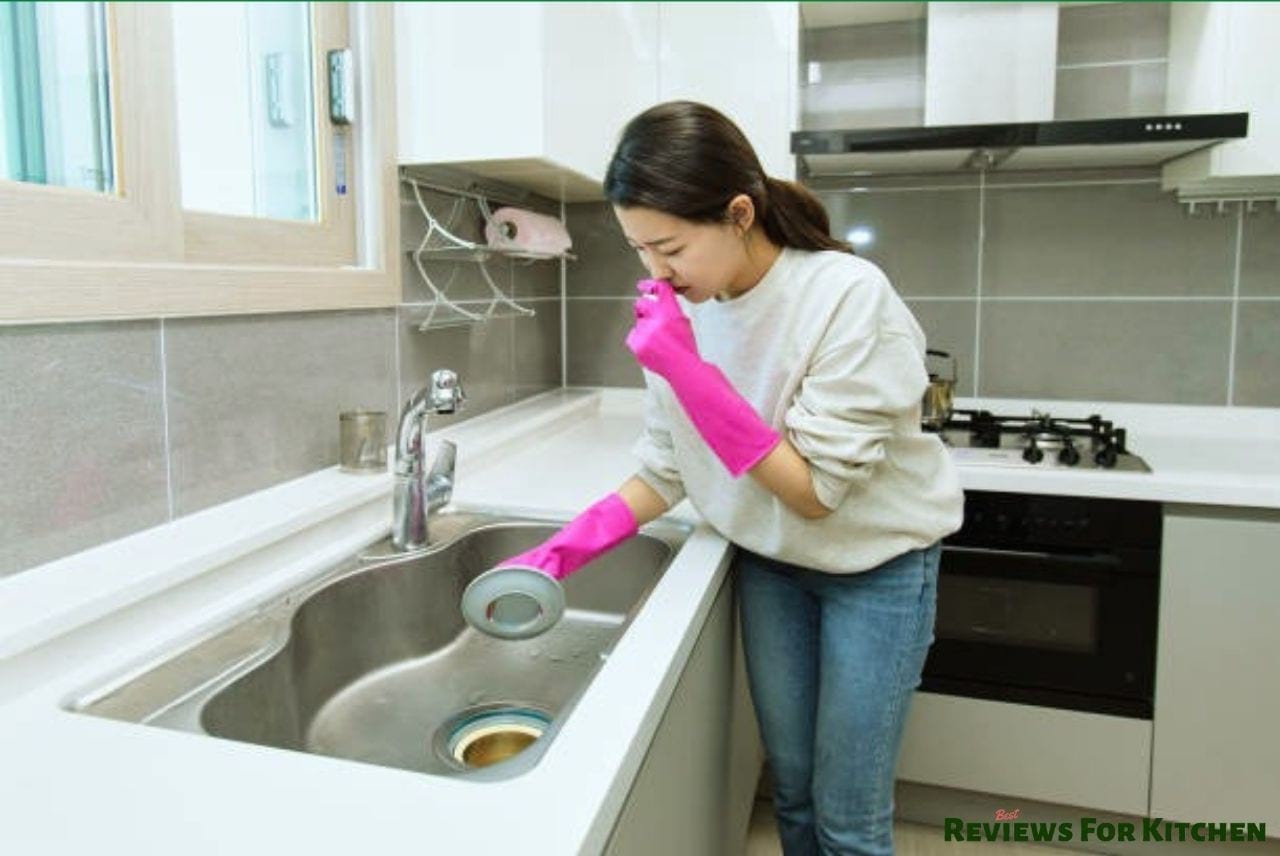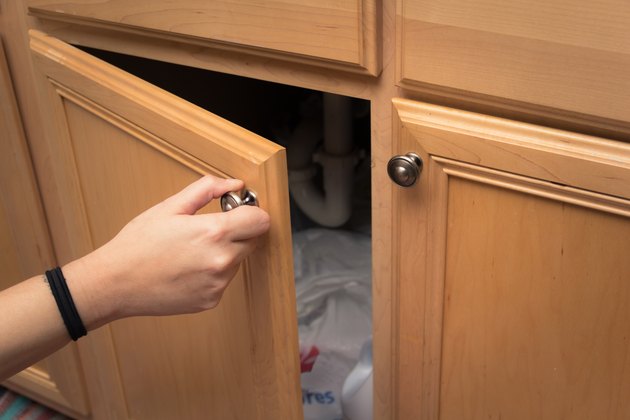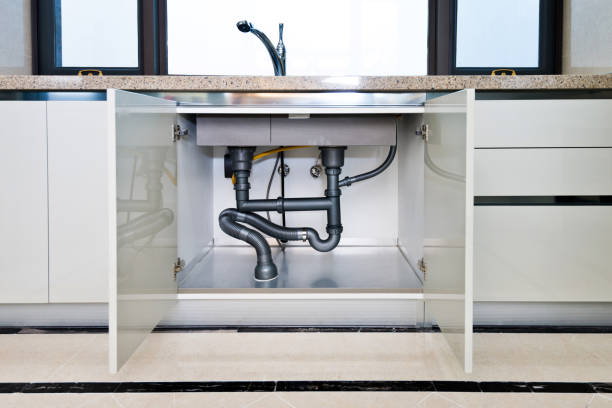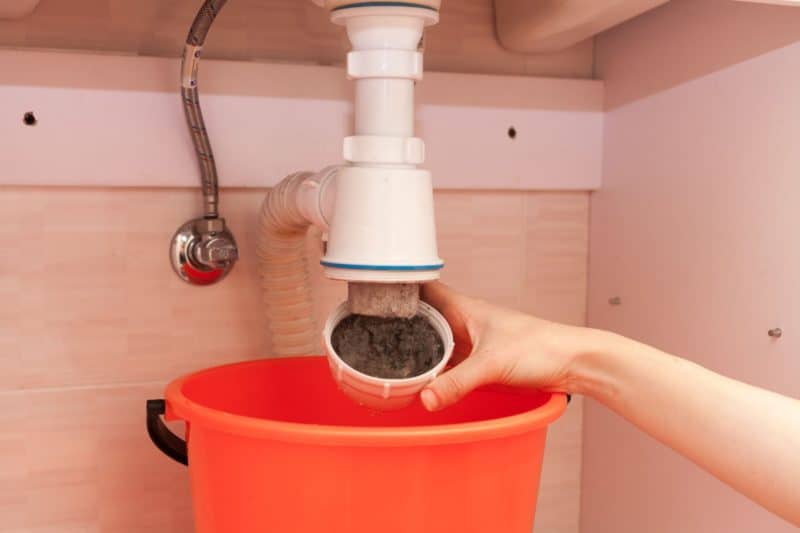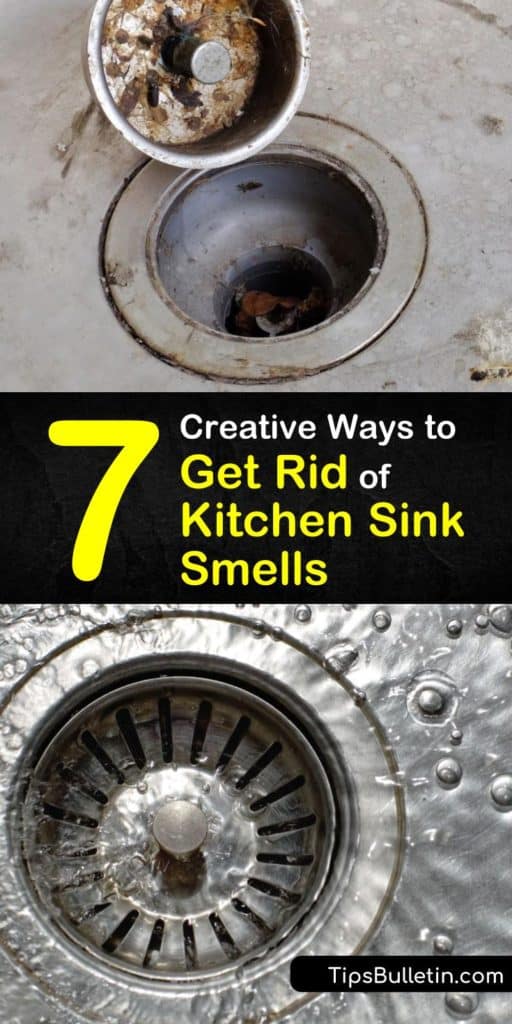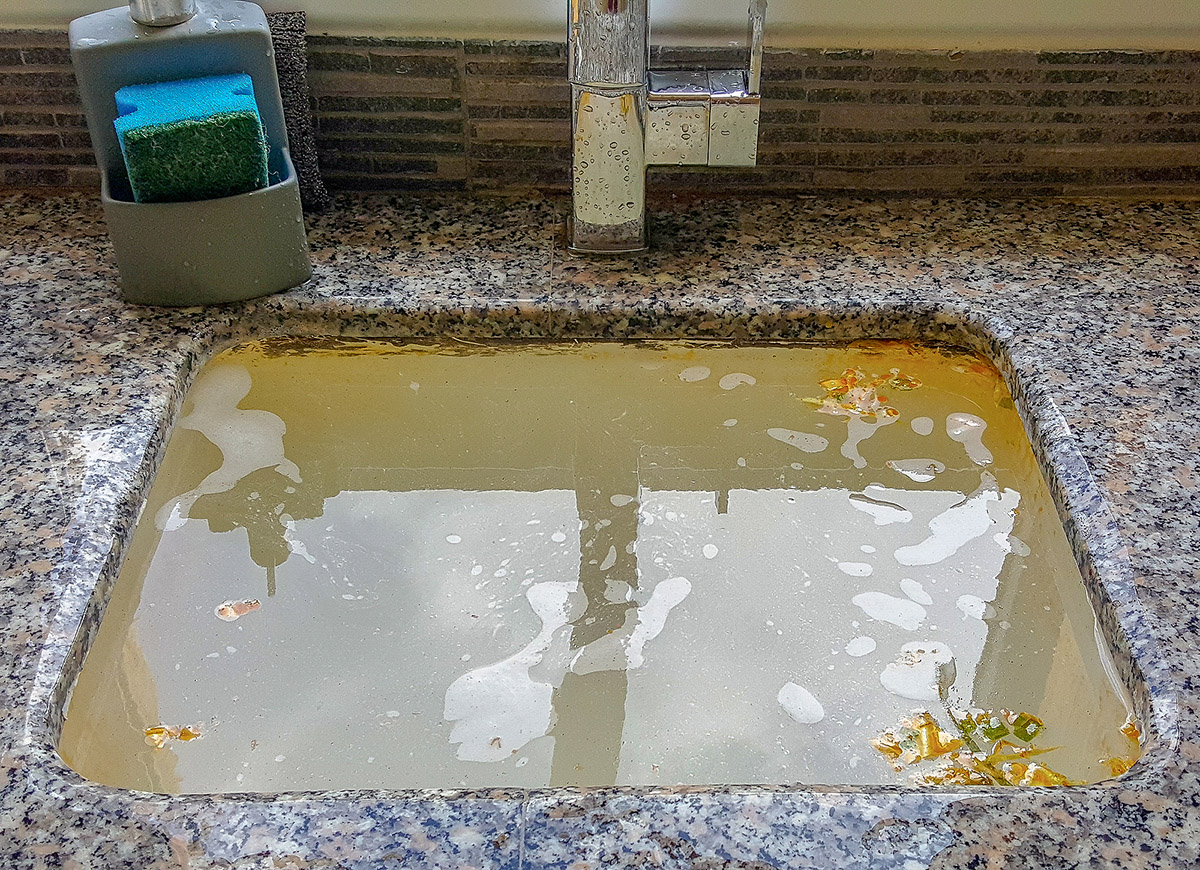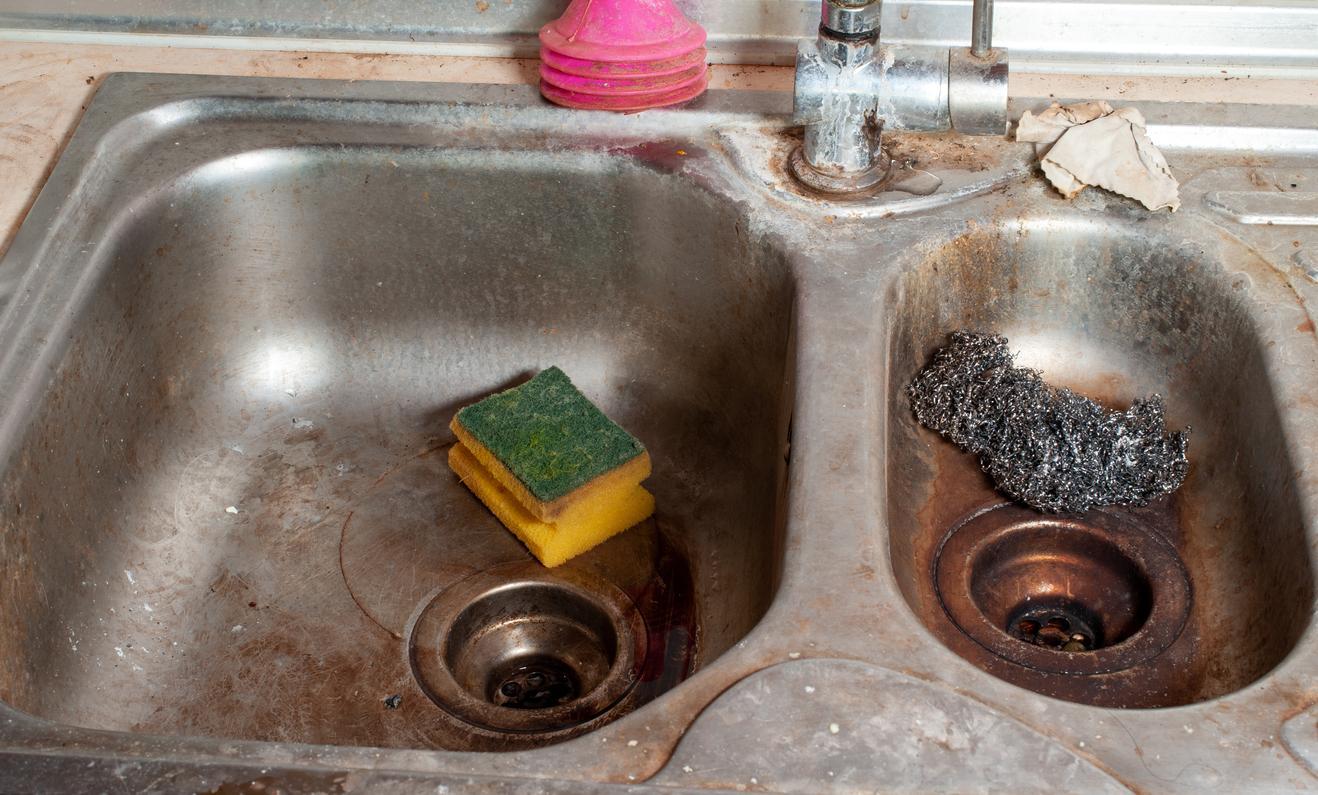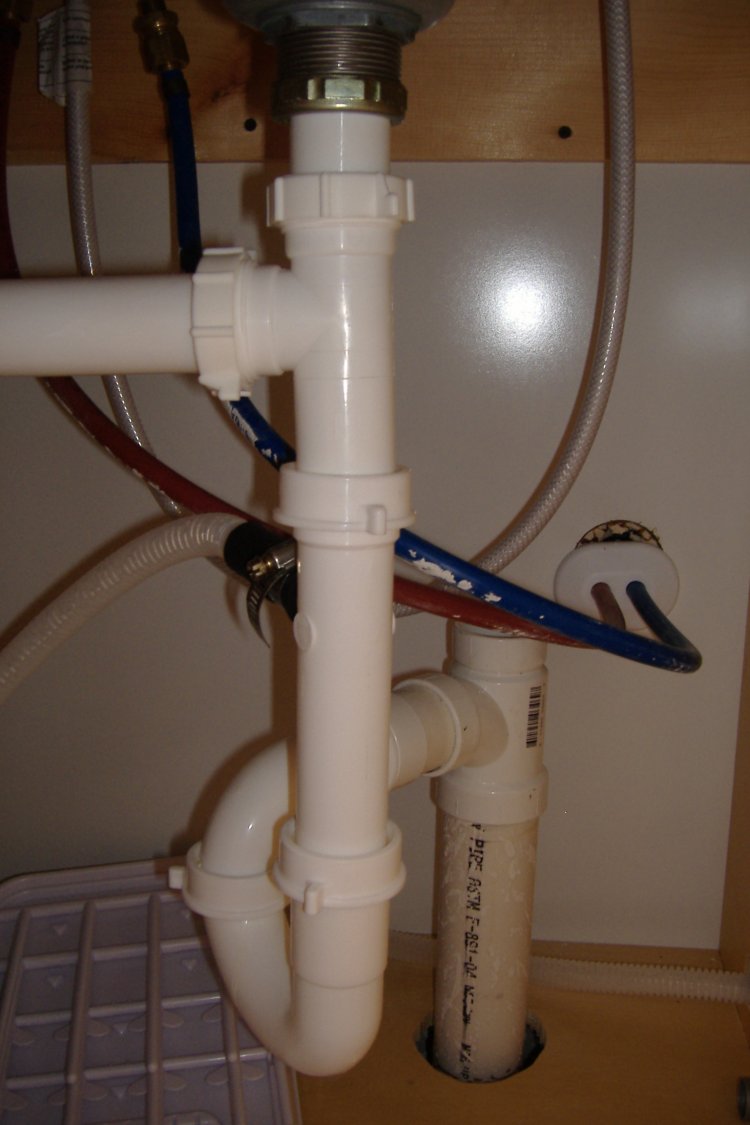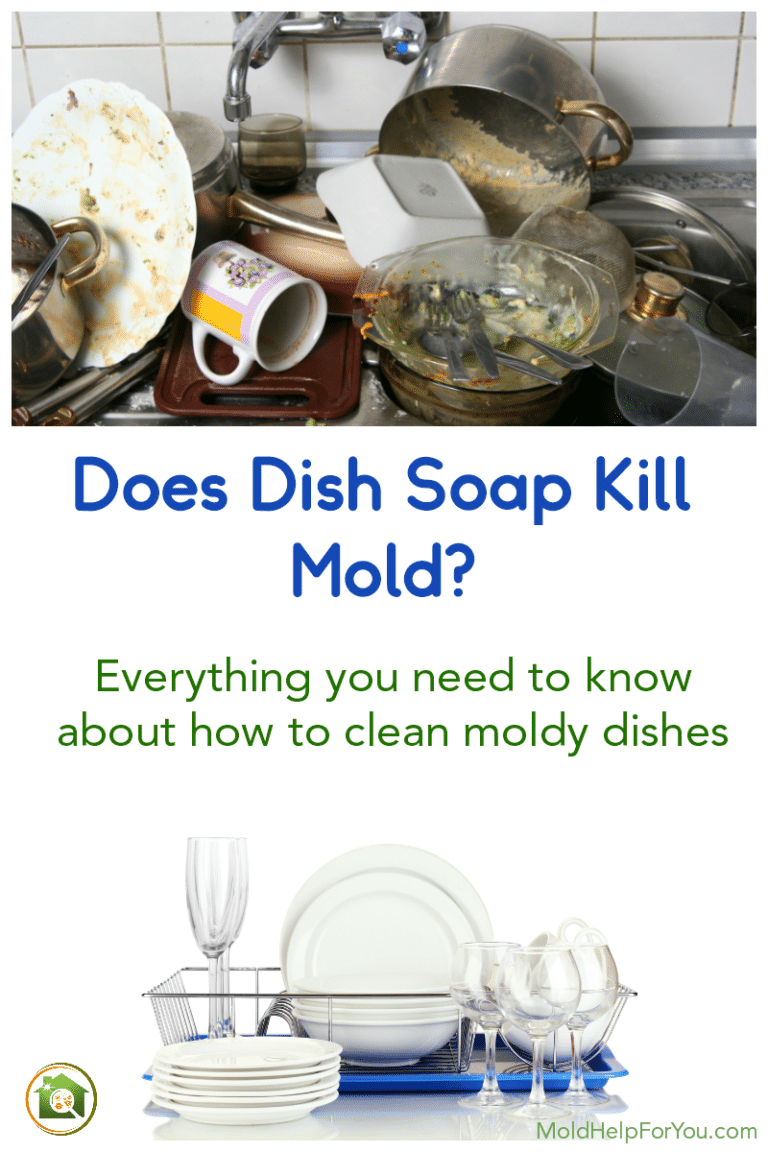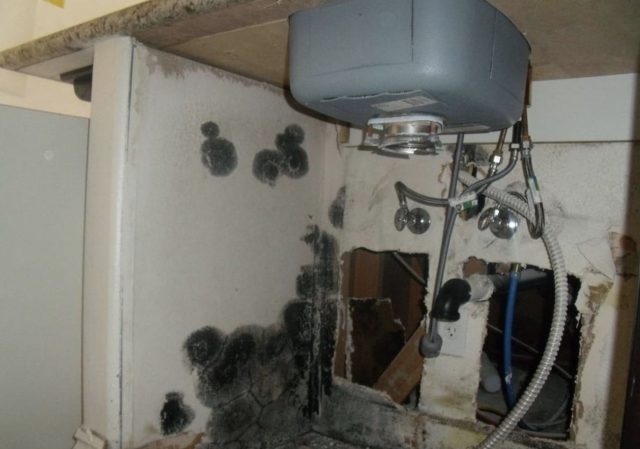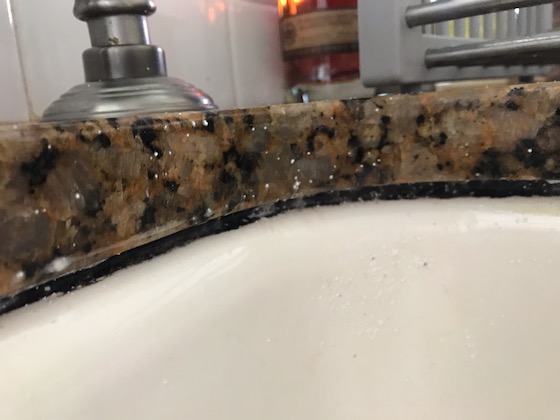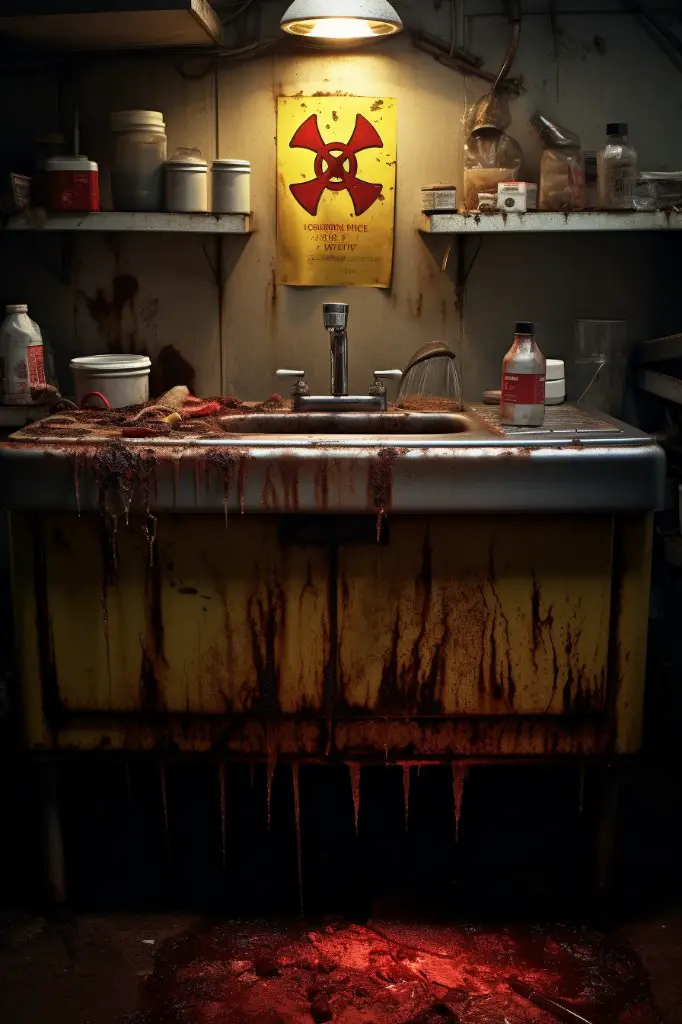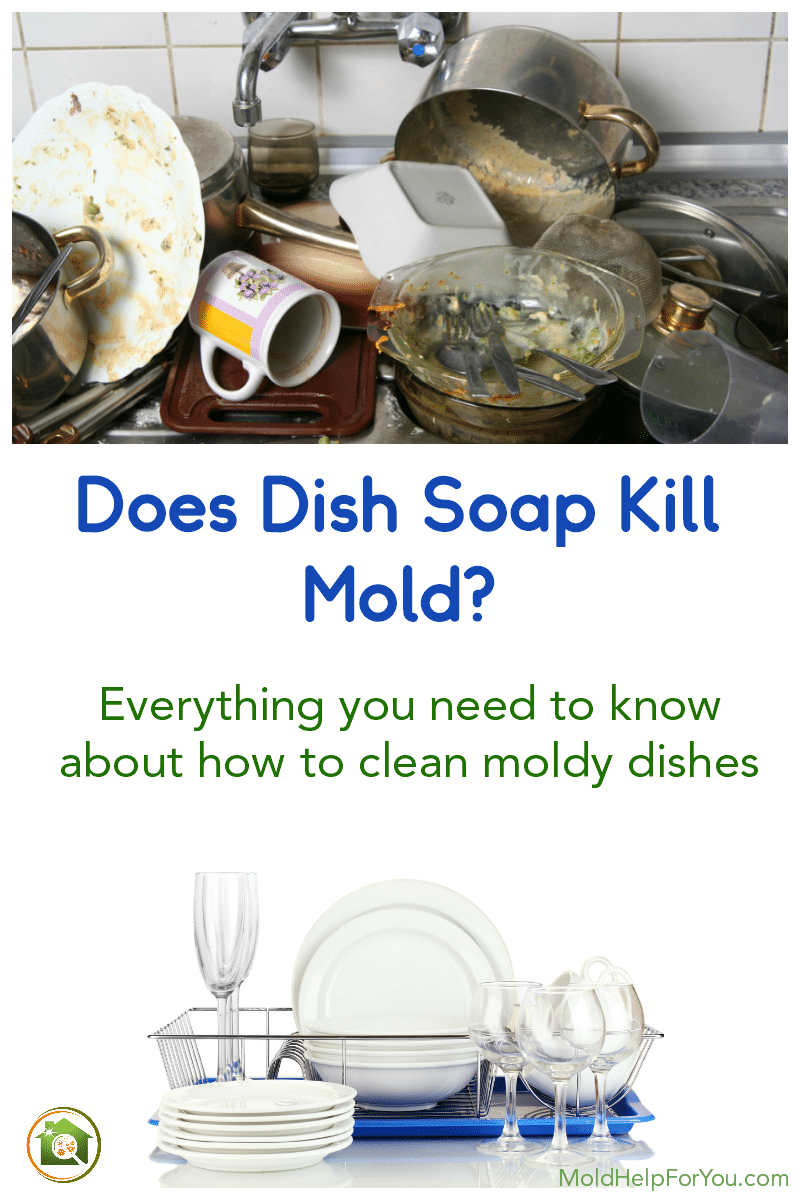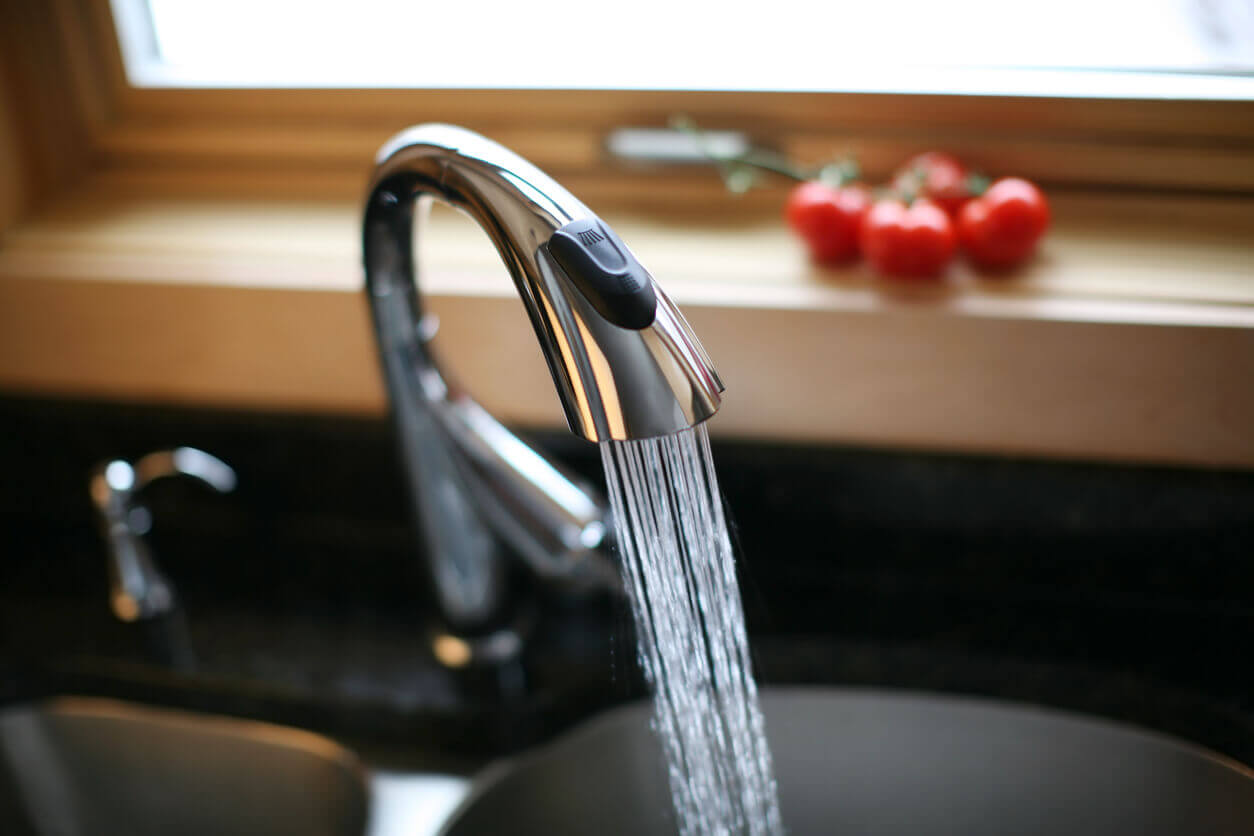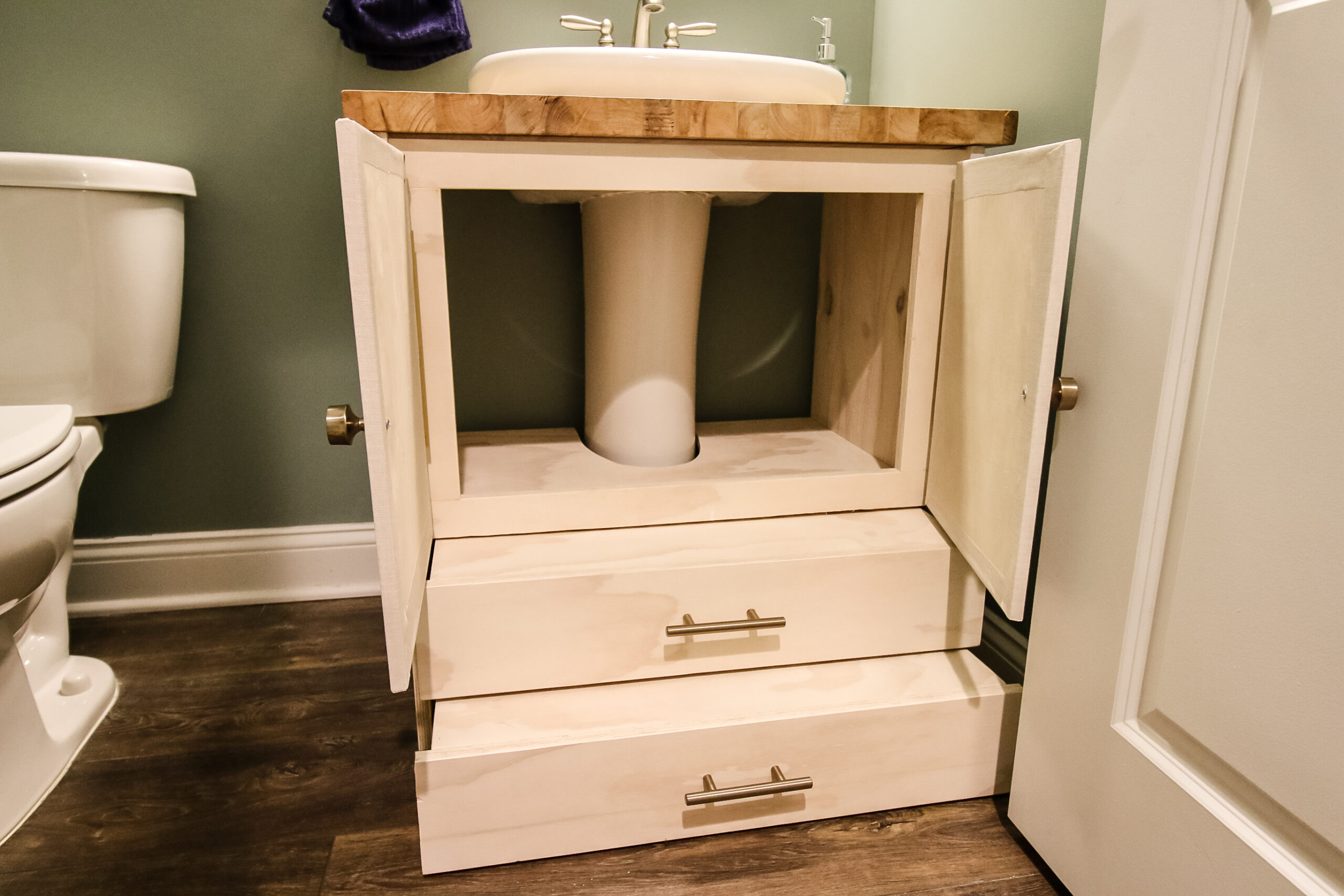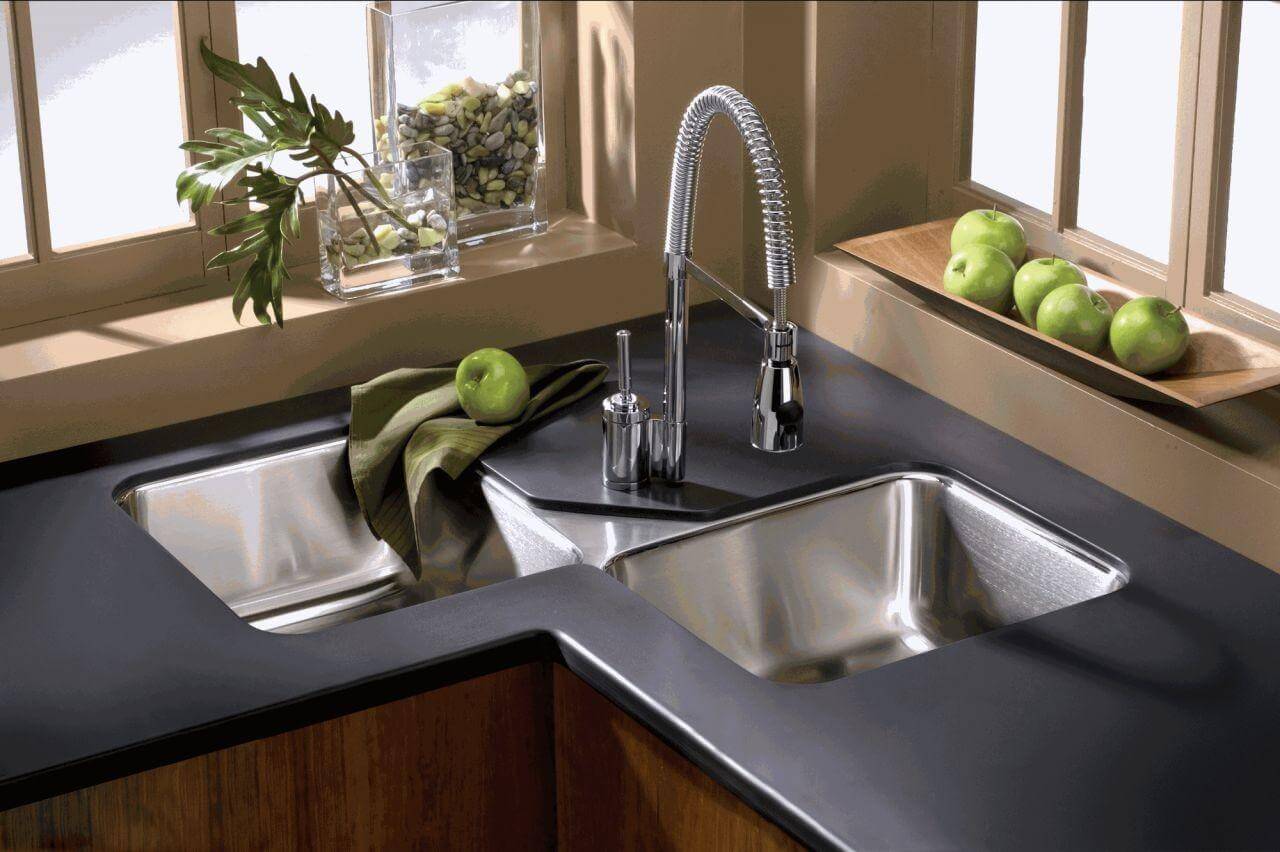If you've noticed a funky odor coming from your kitchen sink, you're not alone. A moldy kitchen sink smell is a common issue that many homeowners face. Not only is it unpleasant, but it can also be a sign of potential health hazards. But don't worry, with a few simple steps, you can get rid of that moldy smell and have a fresh-smelling kitchen sink once again.How to Get Rid of a Moldy Kitchen Sink Smell
The first step to getting rid of a moldy kitchen sink smell is to understand the causes behind it. The most common culprit is food particles and debris that get stuck in the drain and garbage disposal. When left untouched, these particles can start to decompose and produce a foul odor. Another cause could be a buildup of bacteria or mold in the pipes or disposal unit. To combat these issues, you can start by regularly cleaning your sink and disposal unit with a mixture of hot water and dish soap. You can also use a brush or toothbrush to scrub away any stubborn food particles. For a deeper clean, you can also try using a mixture of vinegar and baking soda to eliminate any mold or bacteria buildup.Causes and Solutions for a Moldy Kitchen Sink Smell
If you're looking for more natural and budget-friendly solutions, there are several DIY remedies you can try. One popular method is using lemon and salt to clean and deodorize your sink. Simply cut a lemon in half, sprinkle salt on the exposed side, and use it to scrub your sink and disposal unit. The acidity of the lemon will help break down any grime or buildup, while the salt acts as a gentle abrasive. You can also try using a mixture of hydrogen peroxide and baking soda. This combination creates a powerful cleaning agent that can effectively eliminate mold and bacteria. Just mix equal parts of hydrogen peroxide and baking soda into a paste, and use it to scrub your sink and disposal unit.DIY Remedies for a Moldy Kitchen Sink Smell
As the saying goes, prevention is better than cure. To prevent a moldy kitchen sink smell from occurring in the first place, there are a few simple steps you can take. Always remember to run water down the drain after using your sink and disposal unit. This will help flush out any food particles that may have accumulated. You can also try pouring a mixture of hot water and vinegar down the drain once a week to keep it clean and fresh. Another preventive measure is to avoid pouring grease or oil down the drain. These substances can solidify and clog your pipes, leading to unpleasant odors and potential plumbing issues. Instead, wipe down greasy dishes with a paper towel before washing them in the sink, and dispose of any excess grease in the trash.Preventing a Moldy Kitchen Sink Smell
Aside from food particles and bacteria, there are a few other common culprits of a moldy kitchen sink smell. One of them is a clogged or damaged vent pipe. This pipe is responsible for allowing air to escape from the drain, and if it is blocked or damaged, it can lead to a buildup of foul-smelling gases. Another culprit could be a broken or malfunctioning garbage disposal. If your disposal unit is not working properly, it can lead to food particles getting stuck and causing a moldy smell. In this case, it may be best to call a professional plumber to assess and repair the issue.Common Culprits of a Moldy Kitchen Sink Smell
If the DIY remedies and preventive measures don't seem to be working, it may be time to call in the professionals. A plumber or drain cleaning service can use specialized tools and techniques to thoroughly clean and unclog your sink and disposal unit. They can also inspect your pipes for any potential issues and provide solutions to prevent a moldy kitchen sink smell from returning.Professional Solutions for a Moldy Kitchen Sink Smell
Aside from the obvious foul odor, there are a few other signs that may indicate a moldy kitchen sink smell. You may notice slow drainage, gurgling noises coming from the pipes, or even an increase in fruit flies or other pests around your sink. If you experience any of these signs, it's best to address the issue as soon as possible to prevent it from getting worse.Signs of a Moldy Kitchen Sink Smell
When it comes to cleaning a moldy kitchen sink, the key is to be thorough and consistent. Start by removing any visible debris and scrubbing the sink and disposal unit with hot water and dish soap. Then, use a mixture of vinegar and baking soda or another cleaning agent of your choice to eliminate any traces of mold or bacteria. For extra protection, you can also use a disinfectant spray or wipes to sanitize your sink and disposal unit. And don't forget to regularly clean the area around the sink, including the faucet and handles, to prevent any potential sources of mold or bacteria from spreading.How to Clean a Moldy Kitchen Sink
If you're not a fan of DIY remedies, there are plenty of commercial products available specifically designed to combat a moldy kitchen sink smell. Look for cleaning products that contain natural ingredients such as citrus oils or enzymes that can effectively break down and eliminate mold and bacteria. You can also opt for disinfectant sprays or wipes for quick and easy cleaning.Products to Use for a Moldy Kitchen Sink Smell
Aside from the unpleasant odor, a moldy kitchen sink smell can also pose potential health risks. Mold and bacteria can release harmful toxins that can cause respiratory issues and allergies. Prolonged exposure to these toxins can also lead to more serious health problems. That's why it's essential to address a moldy kitchen sink smell as soon as it's noticed. In conclusion, a moldy kitchen sink smell is a common issue that can be easily remedied with a little bit of effort and some regular maintenance. By understanding the causes and taking preventive measures, you can keep your kitchen sink smelling fresh and clean. And if all else fails, don't hesitate to call in the professionals for a thorough and effective solution.Health Risks of a Moldy Kitchen Sink Smell
Eliminating the Moldy Kitchen Sink Smell: Tips and Tricks
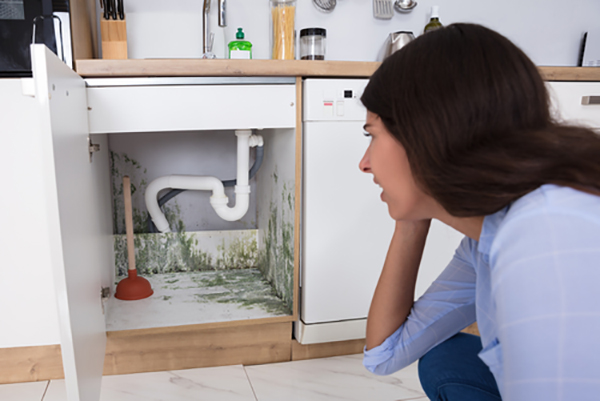
The Importance of a Clean and Fresh-Smelling Kitchen
 A kitchen is often considered the heart of a home, where delicious meals are cooked and memories are made. However, nothing can ruin the ambiance of a kitchen more than a moldy smell coming from the kitchen sink. Not only is it unpleasant to be around, but it can also indicate potential health hazards. Mold can release spores into the air, which can trigger allergies and respiratory problems. Moreover, a moldy kitchen sink can also attract pests and bacteria, making it a breeding ground for germs. Therefore, it is crucial to address this issue as soon as possible to maintain a clean and healthy kitchen environment.
A kitchen is often considered the heart of a home, where delicious meals are cooked and memories are made. However, nothing can ruin the ambiance of a kitchen more than a moldy smell coming from the kitchen sink. Not only is it unpleasant to be around, but it can also indicate potential health hazards. Mold can release spores into the air, which can trigger allergies and respiratory problems. Moreover, a moldy kitchen sink can also attract pests and bacteria, making it a breeding ground for germs. Therefore, it is crucial to address this issue as soon as possible to maintain a clean and healthy kitchen environment.




